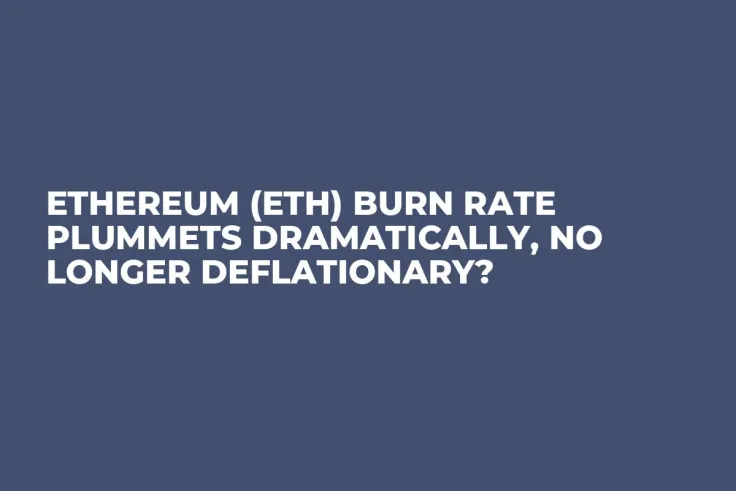Ethereum's celebrated burn mechanism has recently shown signs of cooling down, prompting some to question if the world's second largest blockchain by market cap is not currently deflationary. Recent data raises eyebrows, illustrating a sharp decline in the Ethereum burn rate.
On Aug. 12, the single-day burn rate for Ethereum dropped to merely 570.54 ETH. This low figure is not far from the previous bottom recorded on Oct. 2, 2022, when only 498.16 ETH were burned. Such figures can be troubling for investors and Ethereum enthusiasts who look at the burning mechanism as a way to counteract the inflationary tendencies of cryptocurrency, ultimately enhancing ETH's scarcity and value.
A closer look at the data and underlying activity reveals a significant shift from Ethereum's Layer 1 (L1) to Layer 2 (L2) solutions. L2 solutions, like Arbitrum and Base, aim to scale Ethereum by handling transactions off the main chain and then settling them in a condensed form. This migration from L1 to L2 reduces the load on Ethereum's mainnet and, consequently, the number of transactions that contribute to the burn rate.
Moreover, the current decline in activity on Ethereum's mainnet is not solely due to technical shifts. An equally crucial factor is the waning interest of institutional investors in the Ethereum space. Institutions, with their significant purchasing power, play a pivotal role in driving transaction volume and, by extension, the burn rate of Ethereum. Without consistent institutional participation, especially in large-scale transactions, Ethereum's mainnet activity may remain subdued, impacting the burn rate.
As for institutional investors, the flow of interest from them into the crypto space is not uncommon and can be influenced by a myriad of factors, ranging from global economic conditions to regulatory shifts.



 Dan Burgin
Dan Burgin Vladislav Sopov
Vladislav Sopov